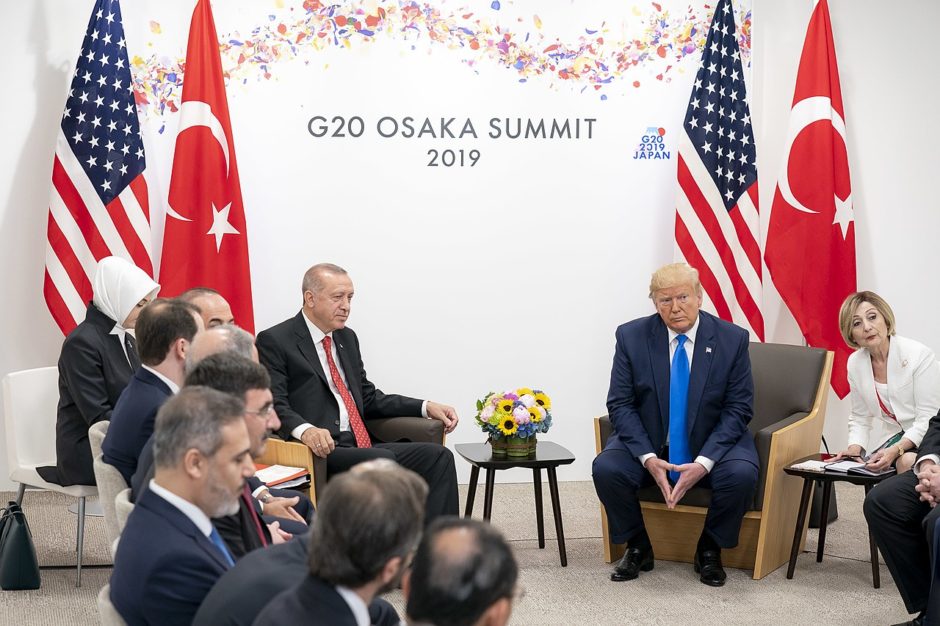Turkey’s troubled relationship with the United States took another hit on July 12 when the Turkish armed forces received the first components of the vaunted S-400 Russian air defence system.
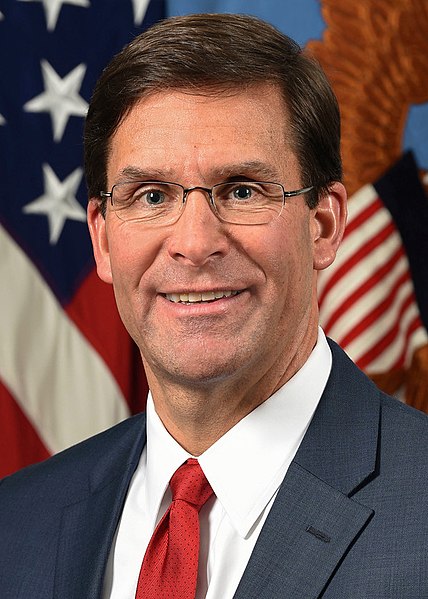
Just days after acting U.S. Defence Secretary Mark Esper warned Turkey that it would face economic sanctions if it went ahead with the controversial $2.5 billion deal, three Russian Antonov cargo aircraft landed in Ankara with the first elements of the S-400, one of the finest systems of its kind. Designed to destroy aircraft and cruise and ballistic missiles, the S-400 can also be deployed against ground installations, and can can engage targets at a distance of 400 kilometers and at an altitude of up to 30 kilometres.
The initial shipment of S-400 parts reportedly consisted of nine transporter erector launchers, target acquisition and engagement radar systems, long-range surveillance radar, and a command-and-control unit. Further shipments arrived on July 13. The complete system will be delivered in three installments.
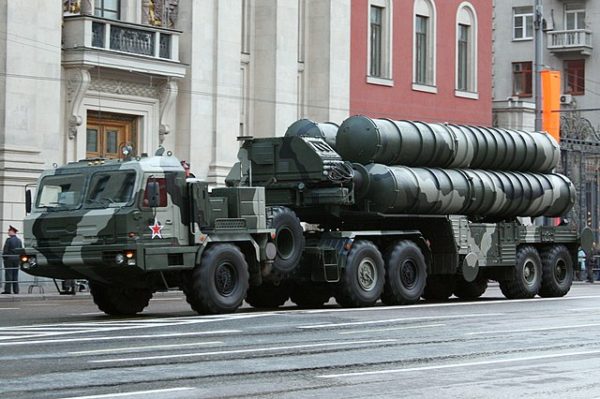
Turkish President Recep Tayyip Erdogan and U.S. President Donald Trump tried to resolve the issue at the G20 summit in Osaka, Japan late last month, but failed to bridge their differences. On the eve of the first delivery, Erdogan’s spokesman, Ibrahim Kalin, said, “S-400s will be delivered very soon and will be actively used.”
Turkey, the only Muslim member of the NATO alliance, is bracing for American sanctions, but hopes they will be limited.
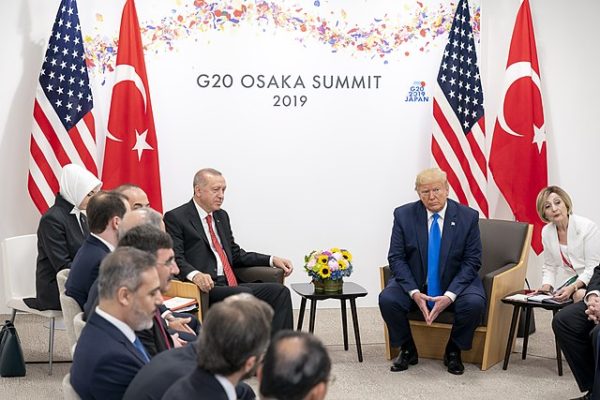
Turkish Defence Minister Hulusi Akar told Esper the S-400 does not change Turkey’s strategic orientation. Turkey is under “serious threat,” he claimed, and its purchase of the S-400 was necessary for self-defence. Akar has repeatedly assured the United States that Turkey would operate the missile system without the assistance of Russia, relying on its own software and military and technical personnel, but his argument has fallen on deaf ears.
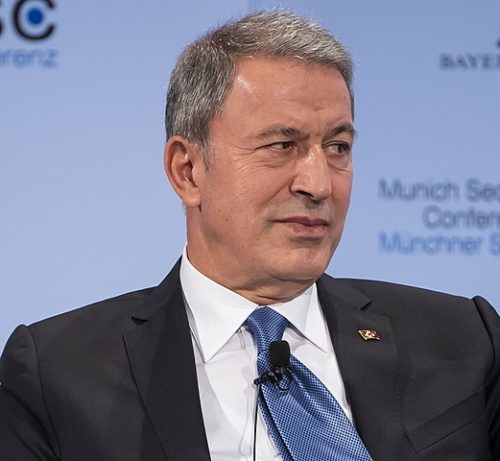
The Trump administration fears that Russian technicians setting up S-400 batteries in Turkey will obtain valuable data on the capabilities of the advanced F-35 stealth fighter jet, which cost $100 a piece. Turkey has ordered 100 from the United States. (Israel, having ordered 50, took delivery of its 16th F-35 on July 14).
Turkey’s acquisition of the S-400 is a significant problem, since Turkey guards the southeastern flank of NATO, while Russia is regarded as NATO’s chief adversary. American critics of the sale claim that Russian President Vladimir Putin campaigned for the sale because it is lucrative and complies with his plan to divide NATO, which Turkey joined in 1951.
“That a NATO ally would choose to side with Russia and Vladimir Putin over the alliance and closer cooperation with the United States is hard to fathom,” said Eliot Engel (New York) and Michael McCaul (Texas), two leading members of the House of Representatives’ Foreign affairs Committee in a joint statement. “Turkey and Erdogan must face stiff consequences for this decision.”
The Senate’s Foreign Affairs and Armed Services Committee also expressed dismay.
“By accepting delivery of the S-400 from Russia, President Erdogan has chosen a perilous partnership with Putin at the expense of Turkey’s security, economic prosperity and the integrity of NATO,” the committee said in a statement.
As a result of Turkey’s action, the United States has cut Turkey out of the F-35 program and stopped training Turkish pilots who were due to fly the aircraft.
Turkey’s exclusion from the F-35 program is a bitter blow, since Turkey was counting on it to modernize its U.S.-equipped air force. The Turkish government trusts that U.S. sanctions will not affect other defence-related projects with the United States.
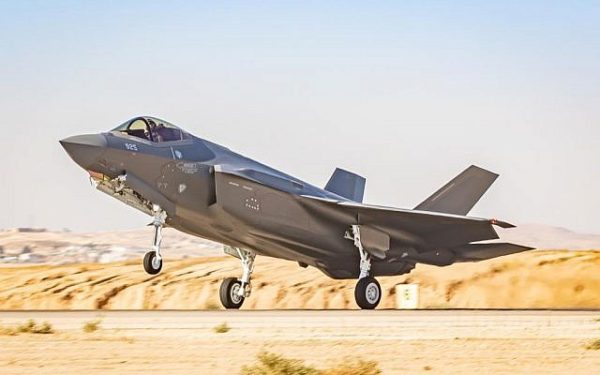
Trump is scheduled to address the matter later this week.
Turkey’s purchase of the S-400 was prompted by its failure to acquire the Patriot surface-to-air missile system from the United States. During Barack Obama’s presidency, U.S. and Turkish negotiators began talks on the Patriots, but failed to produce an agreement that would have permitted Turkey to acquire them.
Last month, Trump accused the Obama administration of squandering an opportunity to sell the Patriot system to Turkey. “It’s a mess,” he said. “And honestly, it’s not really Erdogan’s fault.”
Patriot batteries, however, have been stationed in Turkey by NATO since the outbreak of the civil war in Syria eight years ago.
Turkey’s possession of the S-400 is a sure sign that its bilateral relations with Russia have improved.
Four years ago, Turkey shoot down a Russian jet that penetrated its air space, sparking a crisis between the two sides. In the wake of that incident, Turkey went to great lengths to repair the damage. Turkey and Russia are still at odds over the Syrian civil war, supporting different sides, but this disagreement has not affected their mutual ties.
Turkey’s relations with the United States remain somewhat rocky, despite a Turkish consensus that Washington is an indispensable ally.
Turkey’s refusal to join the United States in its 2003 invasion of Iraq soured the atmosphere. And Washington’s support of the YPG, a Syrian Kurdish group in northern Syria that Turkey regards as a terrorist organization, may well have been a factor in driving the Turks into the arms of the Russians.
The failed coup d’état in Turkey in July of 2016, during which Erdogan barely escaped with his life, has also affected Turkish attitudes toward the United States. Erdogan blamed Fethullah Gulen — an influential Turkish cleric who had a falling out with him and now lives in Pennsylvania — for plotting to overthrow his regime. Erdogan demanded Gulen’s extradition, but the United States has so far refused.
And now, with the delivery of the S-400 system to Turkey, Turkey’s relations with the United States seem headed for another downward spiral.
